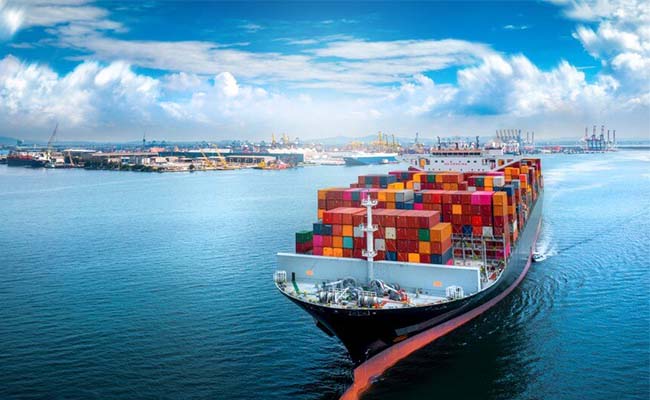- By TOP CHINA FREIGHT
- August 28, 2025
- Shipping
Rising freight costs, port congestion, and unpredictable delays have made choosing the right shipping lines from China more important than ever. The right carrier can reduce transit times, lower risks, and improve supply chain efficiency. This detailed guide explores top carriers, route options, cost structures, and actionable strategies to help you manage ocean freight with confidence.

1.The Role of Shipping Lines in Global Trade
Shipping lines from China form the backbone of international logistics. They move everything from electronics and textiles to bulk commodities like steel and chemicals. With China serving as the world’s manufacturing hub, these carriers connect major Chinese ports like Shanghai, Ningbo, Shenzhen, and Qingdao to nearly every global market.
Key functions include:
2.Leading Shipping Lines from China
Here are the most reliable shipping lines from China trusted by global businesses:
| Carrier | Strengths | Best Use | Primary Routes |
|---|---|---|---|
| COSCO Shipping | Competitive rates, strong intra-Asia coverage | Bulk and retail cargo | Asia, Europe, USA |
| Maersk Line | High reliability, advanced tracking | High-value goods | Global routes |
| MSC (Mediterranean Shipping Company) | Largest fleet, fast delivery | High-volume goods | Global routes |
| CMA CGM | Flexible schedules, diverse services | Electronics, consumer goods | Europe, Africa, Americas |
| Hapag-Lloyd | Excellent European coverage | Automotive, machinery | Europe, Americas |
| ONE (Ocean Network Express) | Cost-effective intra-Asia options | Consumer goods | Asia, USA |
| Evergreen Marine | Strong US and Europe routes | Mixed cargo | USA, Europe |
3.Key Routes for Shipping Lines from China
Different routes influence cost, transit time, and reliability. Understanding your route options is critical to choosing the right shipping lines from China.
Popular Global Routes:
- Ports: Shanghai, Ningbo → Los Angeles, New York
- Transit Time: 12–25 days
- Ports: Shenzhen, Qingdao → Rotterdam, Hamburg, Antwerp
- Transit Time: 28–40 days
- Ports: Shenzhen, Xiamen → Bangkok, Manila, Singapore
- Transit Time: 5–12 days
- Ports: Ningbo, Qingdao → Durban, Lagos, Mombasa
- Transit Time: 28–40 days
- Ports: Shanghai, Ningbo → Sydney, Melbourne
- Transit Time: 14–20 days
4.Cost Structure for Shipping Lines from China

Several factors influence the cost of shipping lines from China:
1.Container Size and Type:
20ft, 40ft, or reefer containers.
2.Port of Loading and Destination:
Longer routes cost more.
3.Seasonality:
Q4 and Chinese New Year lead to surcharges.
4.Fuel Adjustments:
Bunker Adjustment Factor (BAF) changes with oil prices.
5.Terminal Handling Charges:
Vary by port and carrier.
| Container Type | Estimated Cost (USD) | Notes |
|---|---|---|
| 20ft Standard | $2,000–$3,500 | Common for small to mid-size loads |
| 40ft Standard | $3,500–$6,000 | Best for bulk shipments |
| Reefer Container | $4,500–$7,500 | For perishable or sensitive goods |
5.Container Options Offered by Shipping Lines
Shipping lines from China provide multiple container types to fit different cargo needs:
| Container Type | Best For | Notes |
|---|---|---|
| Standard (20ft/40ft) | General cargo | Most cost-effective |
| High Cube | Oversized cargo | Extra height for bulk loads |
| Reefer | Perishable goods | Controlled temperature |
| Open Top | Machinery, oversized goods | Easy loading/unloading |
| Flat Rack | Heavy or oversized items | Specialized handling |
6.How to Choose the Right Shipping Line
Does the carrier serve your destination port?
Align with your delivery deadlines.
Compare rates for your route and container type.
Look for tracking, support, and guaranteed space.
Working with a forwarder can unlock better pricing and priority space.
7.Advantages of Partnering with Reliable Shipping Lines
Using reputable shipping lines from China offers significant benefits:
- Consistent schedules that reduce delays.
- Real-time tracking for improved visibility.
- Competitive rates for bulk or regular shipments.
- Priority booking during peak seasons.
- Better handling of special cargo like dangerous goods or perishable items.
8.Common Challenges in Ocean Freight and Solutions
| Challenge | Impact | Solution |
|---|---|---|
| Port Congestion | Extended delays | Book early, consider alternative ports |
| Freight Rate Volatility | Budget uncertainty | Lock annual or quarterly contracts |
| Space Shortages | Missed sailings | Use forwarders with block space agreements |
| Documentation Errors | Customs delays | Double-check paperwork before submission |
9.Strategies to Reduce Costs
Optimizing your shipping process can help you save significantly on shipping lines from China:
1.Plan Shipments Early:
Avoid last-minute surcharges.
2.Consolidate Cargo:
Share containers with other shippers to lower per-unit costs.
3.Negotiate Long-Term Contracts:
Lock in rates to avoid seasonal spikes.
4.Optimize Packaging:
Reduce volume to fit more goods per container.
5.Ship Off-Peak:
Avoid Q4 and pre-holiday rush.
10.Digital Solutions for Managing Shipments
Monitor your cargo location anytime.
Secure space instantly and compare rates.
Upload and share customs paperwork digitally.
Review past shipments to identify cost-saving opportunities.
11.Case Study
Lowering Freight Costs for a Growing Business
A small electronics exporter in Shenzhen switched from ad-hoc bookings to a long-term contract with COSCO Shipping. By consolidating shipments and negotiating better terms, they reduced costs by 15% annually and secured guaranteed space during peak seasons, avoiding delays that once disrupted their supply chain.
Conclusion
Understanding and choosing the right shipping lines from China can dramatically improve your logistics efficiency and cost management. By evaluating routes, container types, and pricing while leveraging digital tools, businesses can streamline their operations and secure reliable, timely deliveries.
Need a Shipping Quote?
If you want expert guidance and peace of mind, our team is ready to assist.
TJ China Freight offers tailored solutions to help businesses of all sizes ship more reliably from China.
FAQs
Q1:Do shipping lines from China offer door-to-door services?
Some carriers provide door-to-door services through partnerships with local logistics providers. This simplifies delivery, but often involves additional charges compared to port-to-port shipping.
Q2:How flexible are shipping schedules for less-than-container loads (LCL)?
LCL shipments are consolidated with other cargo, so schedules are more frequent but slightly less predictable. It’s best to book early to secure space and avoid delays.
Q3:Can small businesses access the same shipping lines as large companies?
Yes, many carriers work with freight forwarders who consolidate small shipments. This allows SMEs to benefit from the same major shipping lines without needing full container loads.
Q4:What documentation do I need for hazardous goods on shipping lines from China?
Hazardous cargo requires a Material Safety Data Sheet (MSDS), proper labeling, and sometimes special permits. Carriers have strict guidelines to ensure safety during transit.
Q5:How do carriers handle cargo insurance for ocean freight?
Most shipping lines don’t automatically provide insurance; it must be purchased separately. Policies typically cover loss, theft, or damage during transit, giving peace of mind for valuable shipments.
